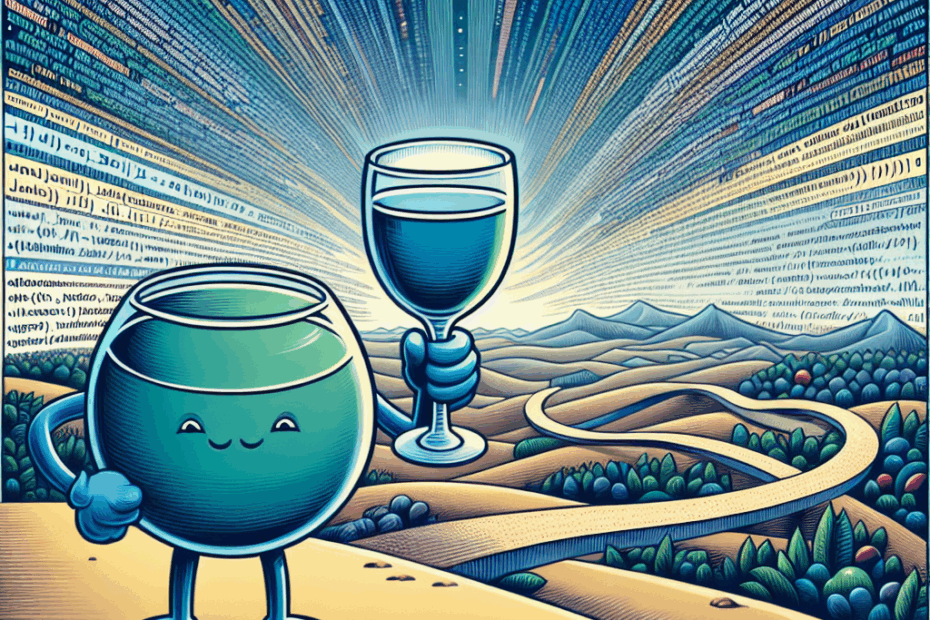“`html
Happy 30th Birthday, Java!
That’s right, folks! Java, a programming language that’s been around for what seems like forever in the tech world, is turning 30! It’s like the seasoned veteran of coding, still kicking even with younger languages like Python and Rust trying to steal the spotlight.
Java: A Pillar of Enterprise Computing
Imagine Java as a super strong building block. For the last three decades, it’s been used to build huge, important computer systems for businesses (that’s what “enterprise computing” means!). It started with a company called Sun Microsystems back in 1995, and even when Oracle bought Sun in 2010, Java kept going strong.
It’s so popular, it’s always near the top of the charts! James Gosling, the person who designed Java (the “father of Java”, as they say), says it’s still being used a lot and is always being improved. He thinks it’ll stick around for many more years.
Why Java’s Still Got It
Georges Saab from Oracle agrees. He says Java has a history of adapting to new technologies. Companies that choose Java get rewarded because it’s always being updated to work with new computers, new ways of programming, and new uses.
But not everyone is completely convinced. Paul Jansen, who keeps track of how popular different programming languages are, has a slightly different view.
He thinks Java is definitely here to stay for big business applications. But, he says, it’s not the first choice for smaller projects. He points out that while Java can work on different kinds of computers (“platform independence”), it can be a bit wordy compared to other languages, and it could be faster.
Lila: Wordy? What does that mean, John?
John: Good question, Lila! “Wordy” in this case means that you sometimes need to write more lines of code in Java to accomplish the same thing you could do with fewer lines in another language like Python. It’s like writing a longer essay when a shorter one would do!
Java’s Expanding Horizons
But even with those criticisms, many experts think Java has a bright future. Kohsuke Kawaguchi, who created a popular system called Jenkins using Java, believes it’s not going anywhere. Scott Sellers, from a company called Azul, says that almost all companies use Java in their computer systems and software. It’s like the backbone of their most important applications.
And it’s not just sticking to the old stuff! Java is moving into new areas like cloud computing (running software on the internet), artificial intelligence (making computers think like humans), and edge computing (processing data closer to where it’s collected).
Innovation and Stability
Scott Sellers says that Java has been delivering what developers and businesses want: independence, the ability to grow and handle more work (“scalability”), and the ability to keep running even when things go wrong (“resilience”). He thinks Java is where new ideas meet stability, and that it will continue to be a fundamental language.
Oracle’s Role in Java’s Future
Georges Saab from Oracle emphasizes that Java is in good hands with Oracle. Oracle is continuing to push Java forward by working with the OpenJDK community (a group of people who contribute to Java) to address new uses for applications. Oracle also wants to make sure that Java stays open and inclusive so that developers can participate in its future.
Charles Oliver Nutter, who works on a language called JRuby that runs on Java, says that Java is evolving faster than ever before. He’s excited about the new releases and thinks it’s a great time to be a developer using Java.
Lila: JVM? What’s that, John?
John: Ah, another great question, Lila! JVM stands for “Java Virtual Machine.” Think of it as a special program that allows Java code to run on different operating systems (like Windows, macOS, or Linux) without needing to be rewritten for each one. It’s like a translator that makes sure everyone can understand what Java is saying!
The next version of standard Java, called JDK 25, is coming out soon, and it’s expected to have long-term support.
John’s Takeaway
It’s amazing to see a technology like Java remain relevant for so long. It shows the importance of adaptability and a strong community in the world of software development. It’s clear that Java isn’t just a language; it’s an ecosystem.
Lila’s Perspective
Wow, 30 years! That’s older than me! It’s cool to see how something can stick around for so long and still be useful. It makes me want to learn more about it!
This article is based on the following original source, summarized from the author’s perspective:
Java turns 30, and there’s no stopping it now
“`
